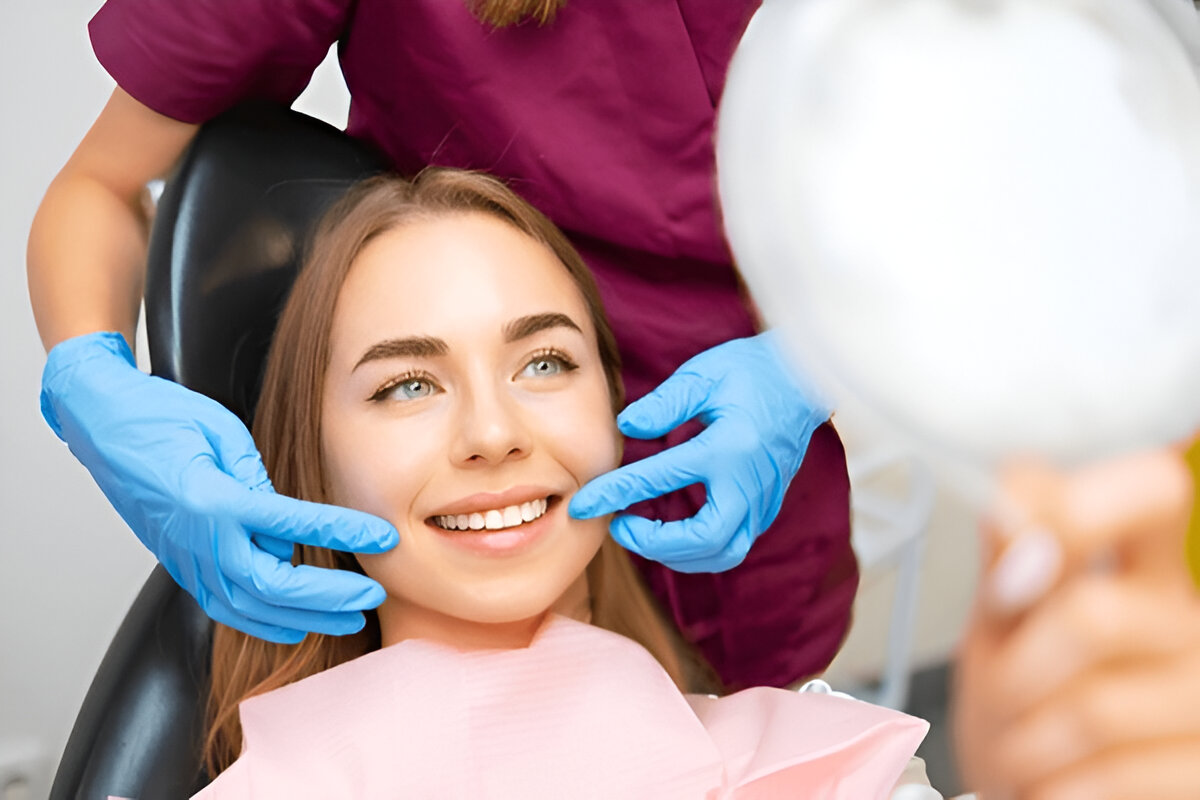Food and Drinks: Coffee, tea, red wine, and dark-colored foods can stain teeth.
Tobacco Use: Smoking or chewing tobacco causes yellowing.
Aging: Enamel wears down over time, revealing the yellower dentin underneath.
Poor Oral Hygiene: Inadequate brushing and flossing lead to plaque buildup and staining.
Medications: Certain antibiotics (e.g., tetracycline) and antihistamines can cause discoloration.
Trauma: Injuries to teeth can lead to darkening.
Genetics: Some people naturally have thicker or whiter enamel.
In-Office Professional Whitening:
Performed by a dentist in Richmond Hill.
Uses high-concentration bleaching agents for fast, dramatic results (1-2 visits).
Includes protective measures for gums and teeth.
At-Home Custom Trays:
Custom-fitted trays and professional-grade whitening gel provided by your dentist.
Worn at home for a specified period over several days.
Over-the-Counter Products:
Whitening toothpaste, strips, or gels available at pharmacies.
Less effective than professional treatments but more affordable.
Laser Teeth Whitening:
Advanced in-office treatment using laser light to activate whitening agents.
Delivers immediate, long-lasting results.
Faster, More Effective Results: Professional treatments deliver noticeable whitening in just one session.
Customized Treatment: Tailored to your specific needs and desired level of whitening.
Safe and Supervised: Performed by trained dentists, minimizing risks like gum irritation or enamel damage.
Long-Lasting Effects: Professional whitening lasts longer than over-the-counter options.
Boosted Confidence: A brighter smile enhances self-esteem and appearance.
Convenient Options: Choose between in-office treatments or take-home kits for flexibility.
Expert Advice: Dentists in Richmond Hill can recommend the best treatment for your teeth and address any concerns.
For a whiter, healthier smile, consult a trusted dental professional in Richmond Hill to explore your teeth whitening options!


Regular dental cleanings are essential for maintaining oral health and preventing serious dental issues. They help remove plaque and tartar buildup, which cannot be eliminated by brushing and flossing alone. Cleanings also allow dentists to detect early signs of problems like cavities, gum disease, or oral cancer.
Physical Examination:
A dental hygienist or dentist examines your mouth for signs of issues like gum disease or cavities.
Plaque and Tartar Removal:
Using specialized tools, the hygienist removes plaque and tartar (hardened plaque) from your teeth, especially around the gumline.
Polishing:
A gritty toothpaste and electric brush are used to polish your teeth, removing surface stains.
Flossing:
The hygienist flosses between your teeth to remove any remaining debris.
Fluoride Treatment (Optional):
A fluoride gel or foam may be applied to strengthen your enamel and prevent cavities.
Final Rinse:
Your mouth is rinsed to remove any leftover particles.
Dentist’s Evaluation:
Prevents Cavities: Removes plaque and tartar, reducing the risk of tooth decay.
Fights Gum Disease: Prevents gingivitis and periodontitis by keeping gums healthy.
Brightens Smile: Removes surface stains, making teeth look cleaner and whiter.
Early Detection of Issues: Identifies problems like cavities, gum disease, or oral cancer early, when they’re easier to treat.
Saves Money: Prevents costly dental procedures by maintaining oral health.
Freshens Breath: Reduces bad breath caused by bacteria buildup.
Improves Overall Health: Linked to lower risks of heart disease, diabetes, and other systemic conditions.
Personalized Advice: Dentists provide tips for improving your oral hygiene routine.
Regular dental cleanings (every 6 months) are a key part of maintaining a healthy smile and overall well-being!
A: The Canadian Dental Association recommends most adults have a professional cleaning every six months. However, your dentist or hygienist may recommend more frequent cleanings depending on your individual oral health needs and risk factors for gum disease.
A: During a cleaning, a registered dental hygienist will remove plaque and tartar buildup from your teeth, polish your teeth, and provide personalized oral hygiene instructions. They may also take X-rays to check for any underlying dental issues.
A: Most people experience minimal discomfort during a cleaning. If you have sensitive teeth or gums, let your hygienist know, and they can take steps to make you more comfortable.
A: Regular cleanings help prevent gum disease, tooth decay, and bad breath. They also allow your dentist or hygienist to detect potential problems early on, when they are easier and less expensive to treat.
A: Brushing your teeth twice a day for two minutes with fluoride toothpaste, flossing daily, and using mouthwash are essential for maintaining good oral hygiene between professional cleanings
A: We offer professional in-office teeth whitening and take-home whitening kits. Our dentist can recommend the best option for you based on your needs and goals.
A: Professional whitening uses stronger bleaching agents than over-the-counter products. In-office whitening provides faster and more dramatic results, while take-home kits offer a more gradual whitening process.
A: Teeth whitening is generally safe when performed by a dental professional. However, some people may experience temporary tooth sensitivity or gum irritation. We will discuss potential risks and side effects with you before your treatment.
A: The results of teeth whitening can last for several months to a few years, depending on your lifestyle habits (such as smoking or consuming staining foods and drinks) and oral hygiene practices. Touch-up treatments may be necessary to maintain your desired level of whiteness.
A: Teeth whitening is most effective on extrinsic stains (those on the surface of the teeth). Intrinsic stains (those within the tooth structure) may not respond as well to whitening and may require other treatment options.

